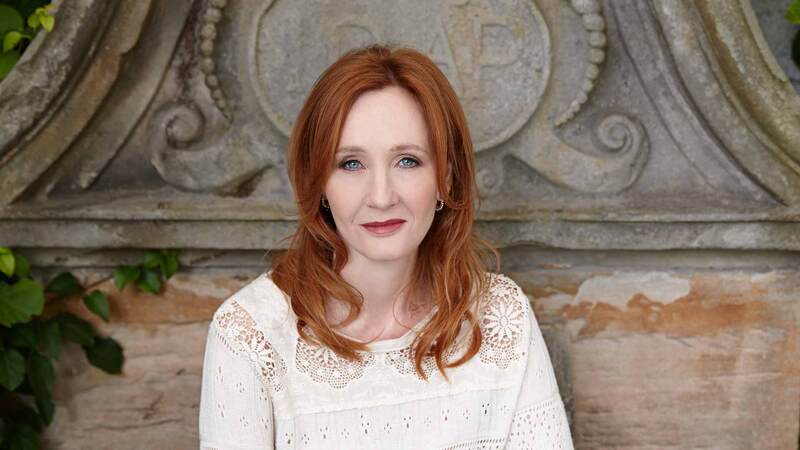You are viewing your 1 free article this month. Login to read more articles.
Pottermore returns to growth
Pottermore, the digital content company for J K Rowling's Harry Potter books, returned to growth in its last financial year after the firm’s decision to make its e-books and audiobooks available via Amazon, Apple, Audible and others “really paid off”.
In the year to end-March 2016, sales more than doubled to £15.1m, compared to £7m a year earlier, after what it reported was a “significant increase” in sales of e-books and digital audiobooks. The company recorded a pretax loss of £4.9m, compared to a loss of £6m a year before, as it continued to invest in its website, new products, and e-commerce site.
The figures do not include the period when Harry Potter and The Cursed Child or Fantastic Beasts were released, or the e-book shorts Pottermore Presents, with the business expecting a return to profitability in the next financial year as a result. They do include the arrival of the Harry Potter enhanced e-books, released in October 2015 through Apple’s iBookstore.
Susan Jurevics, chief executive of Pottermore, said the numbers “validated the strategy” unveiled in 2015 that saw the site ink deals with third-party retailers to sell the Harry Potter e-books and audiobooks direct, rather than soley via the Pottermore website. The decision to be the only retailer for the Harry Potter e-books—made ahead of the launch in 2012—was initially heralded as a triumph, but Jurevics reversed it when she took over as c.e.o. indicating that she wanted to give fans “greater consumer access to Harry Potter e-books and audiobooks”. The shift also allowed Pottermore to launch the enhanced e-books via Apple's iBookstore.
Last year’s accounts showed that digital content sales fell from £4.8m to £3.9m, and though the firm has not split out sales in 2015/16 figures, Jurevics highlighted the resilience of the first seven titles, as well as the release of the enhanced editions, which would have given the e-books and audiobooks a natural uplift. Last year's accounts also showed the impact of the termination of its relationship with Sony—which originally supported the launch of Pottermore in 2012—its royalties income dropping from £32m to £3m.
While the growth in digital content sales has yet to make up this shortfall for this year's accounts, the results show a business becoming more self-sustaining as it moves through the content gears in parallel to the expansion of Rowling's own wizarding world output via the play and the new films. Pottermore now describes itself as a digital publishing, entertainment and news company, with the increase in standalone publishing the most signicant move over the past year. “The shift in Pottermore’s commercial business strategy - working more closely with key business partners - that we began executing in the second half of 2015 has paid off,” said Jurevics. “The new strategic plan is not only driving increased revenue but is also putting us on the path to profitability for our financial year ending in March 2017."
Jurevics also highlighted the decision to make Pottermore mobile-friendly, and lift the need for fans to pre-register. Jurevics said that against a backdrop of sustained global appetite for the world created by author J K Rowling, the site had “grown in popularity". The September launch of Rowling’s Patronus experience drew three million registered users in three days, according to the company. Following the unveiling of The Cursed Child play in July and the first of the five films in the Fantastic Beasts spin-off, Jurevics said the website had worked to “broaden and deepen engagement” with its audiences around the world.
Jurevics would not say how many copies the e-book version of The Cursed Child script had sold compared with the 1.3m copies the print version has retailed through the Nielsen BookScan TCM, or what the expectations were for the Fantastic Beasts script, released last week, except to say that both has performed “strongly”. According to Nielsen, the increased activity around the Harry Potter brand had led to uplifts across print sales of the original seven. The Harry Potter seven collectively sold 167,172 copies for £885,806 in the 14 weeks before the release of "The Cursed Child" play. In the same period since, they have sold 212,806 copies for £1.08m, a 27% jump in volume and a 22% boost in value. The release of the Fantastic Beasts movie will grow the original franchise even more.
When asked about what fresh content would be forthcoming in digital formats from Pottermore, Jurevics said “watch this space”, and highlighted that 2017 was the 20th anniversary of publication of the first Harry Potter book in the UK. ”There is, as you know, an unbelievable thirst for everything Harry Potter, and we are always innovating and looking to how we can meet the needs of the Harry Potter fans.”


















